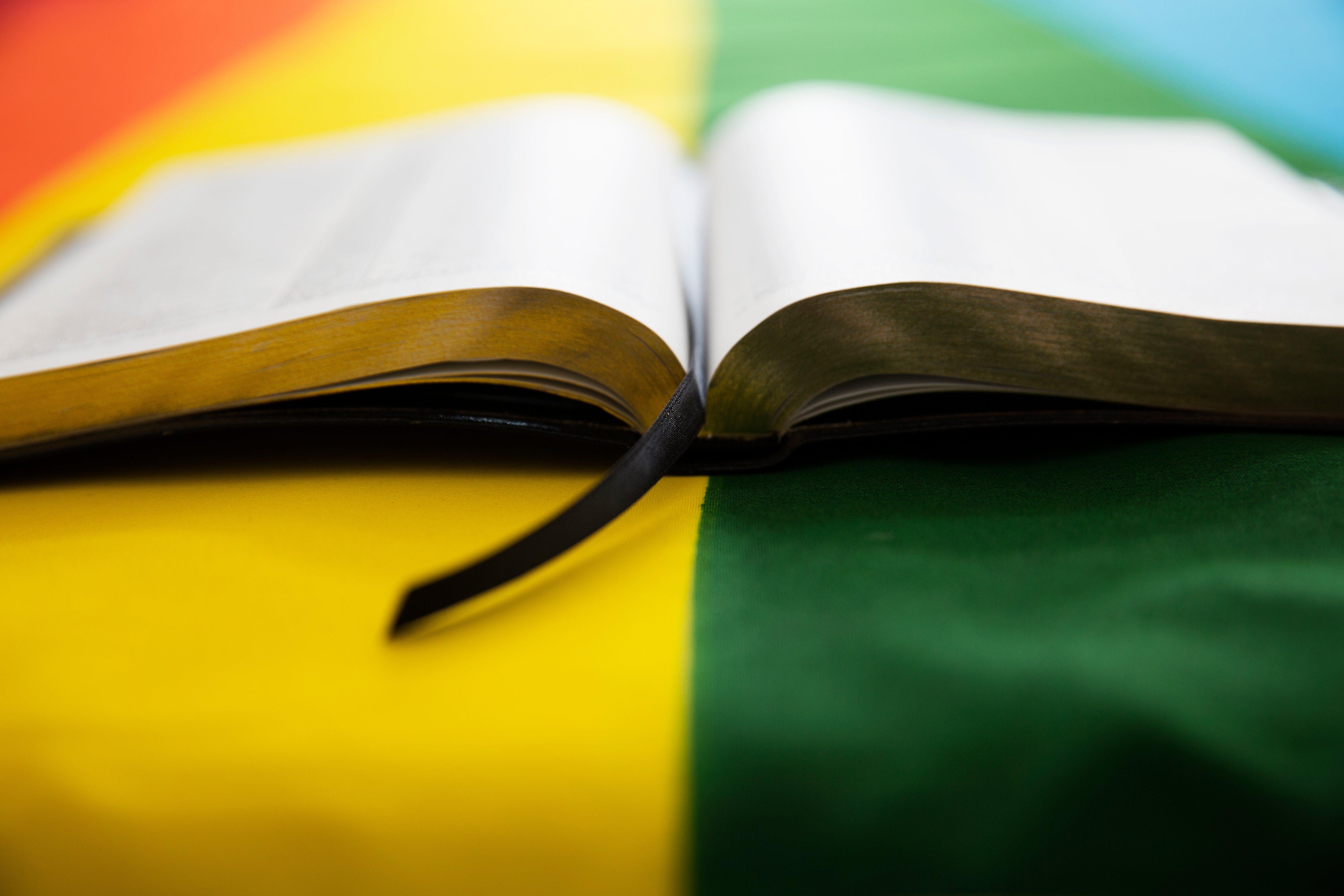
The landscape of sexuality in our culture is changing at warp speed, leaving many with a sense of having run a marathon without remembering a thing about the course. We are tired and relatively unsure how we got here. One thing we do know is that evangelicalism has changed, and with it the face of Christianity. It seems from week to week there is another article, argument, book, or personal story to consider. The average Christian has no real chance to keep up with all that is before them in this cultural moment.
Sometimes this provides for unhelpful defaults. The default of making broad-based generalizations, because it is easier. The default of following everything people we already respect have to say. The default of avoiding nuance (clarity) in our conversation because it takes too much effort. Finally, and perhaps most dangerously the default of treating what we do not know as the “other.” There is plenty of guilt to spread around when it comes to these defaults that tempt us all.
However, the question has to be asked, when will this need for default give way to a better conversation, a better posture, and a better future, given the changing nature of evangelicalism. To be sure change threatens, and people respond in different ways to being threatened. Throughout history, Christianity has been the gadfly that threatened social norms, but in this unique cultural moment, the threat and change is an internal one. The wrestling will result in a new and changed face of Christianity.
The wrestling is evident in the increasing number of stories concerning evangelical churches changing either their posture or theological position on homosexuality and gay marriage. January brought news of a prominent church in Nashville, TN changing its mind on the question of gay marriage. The change was startling not simply the nature of the change, but that it came from the heart of the Bible belt and not from Massachusetts. Then Eastlake, another prominent evangelical church in Seattle began to affirm openly, its LGBT membership. The Ethics and Religious Liberty Commission (ERLC) of the Southern Baptist Convention (SBC) held its annual conference entitled “The Gospel, Homosexuality, and the Future of Marriage.” This conference was notable for the obvious change in tone toward the homosexual community and a clear signal that evangelical attitudes within the SBC now recognized the need to love their LGBT neighbors more intentionally. The change was no more evident than Al Mohler’s repentance having stated that there was no such thing as an orientation.
This week the City Church of San Francisco announced that it was dropping the lifelong celibacy requirement for LGBT membership with the City church. The details of what was taking place were not immediately clear, but in the aftermath clarity has come, and along with it, a growing sense of a ripple effect within the evangelical community. Many churches will follow, accusations will fly, and pressure to change and adapt will mount from within the church and through the chorus of voices outside of it. So what is the church to do?
The answers are easier and harder than we might expect. But the answers will largely depend upon fundamental worldviews and presuppositions. We have not arrived at this cultural moment by mistake, and the consequences of ideas impact the various actions across the evangelical spectrum. Society tends to operate on four basic sources of authority; scripture, tradition, reason, and experience. The order you pout these in or the exclusion of any one or more of them is indicative of your worldview and philosophy. Evangelicals have historically remained tethered to the redemptive-historical understanding of the scriptures and held closely to scriptural inerrancy and authority. There is no longer a clear “evangelical” reading. As is evidenced in the cases of the churches here and expectantly in those to come, the shift will be theological but not largely on theological convictions driven from the scriptures. Rather the changing face of evangelicalism relies upon a postmodern understanding of truth that values community reading and experience over historic interpretation and tradition. Among the progressive evangelical left there is no longer an assumption of authority and inerrancy but rather a rejection or re-visioning of these terms.
Ryan Meeks, pastor of Eastlake in Seattle pointed to one of the main causes of their shift. His response due to the experience of a staff member who was afraid to tell him she was dating a woman. Meeks had this to say; “I refuse to go to a church where my friends who are gay are excluded from Communion or a marriage covenant or the beauty of Christian community,” he says. “It is a move of integrity for me–the message of Jesus was a message of wide inclusivity.” One can argue as to the validity or the relative value of Eastlake’s decision, but the source of authority is clear, experience.
The City Church in San Francisco, Made its decision out of a reimagining of the gospel and the purpose of Christ. Churches’ like The City Church, choose not to deal with the biblical teachings on sexuality and homosexuality, specifically but rather on the love and inclusiveness of Jesus towards sinners. This method and along with it an expanding understanding of the Gospel and the Kingdom has become popular, and one might argue effectively. The City Church put it this way;“If Jesus were the pastor of City Church, what would he say to the people who are asking if they can belong?”As we consider the life of Christ, his example of love, his call to embrace the outsider and cast down, and his patience with those earnestly seeking him, what is a Christ-like response?”
The City Church’s response begs all sorts of questions, but again it is a change in the historic source of authority. There is an appeal to scripture but at the expense of almost any historical and traditional reading, and one that is fueled by experience. The other appeal from the City Church was on the basis of “human flourishing” and the experiences that were “harming” LGBT members, which is entirely experience driven. The approach is highly egalitarian and more palatable to postmodern culture than the seemingly rigid and harsh understanding of historic evangelicals. But is it faithful to the Biblical witness and thus to Christ?
What we believe (doctrine) about the Scriptures, God, and humanity are front and center in this discussion and the historical and apostolic understanding of these doctrines is at risk. The risk is that a new understanding of these beliefs will develop and gain acceptance by something claiming to be evangelical that is far from it, in any sense of the word. Evangelicalism will not have changed in and of itself, but it will in effect be usurped and taken hostage by those who seek to divorce it from any historical meaning of the term. I do not for one second question the heart and motives of those in the Gay Christian and progressive movements, in fact; I count many of them as friends. My intent here is not to disparage any of them in whole or in part. However, I believe that there is room to be faithful to our convictions and lay bare the foundation of this cultural moment and remain committed to humbly and lovingly advancing the conversation, and being willing to listen.
So, let us listen! Let us talk! But let us be honest about the foundations of the issues. Let us not be too sensitive to have a robust conversation about sources, method, and interpretation, in order to freshly understand the true face of evangelicalism by that which is a facade by that same name.











